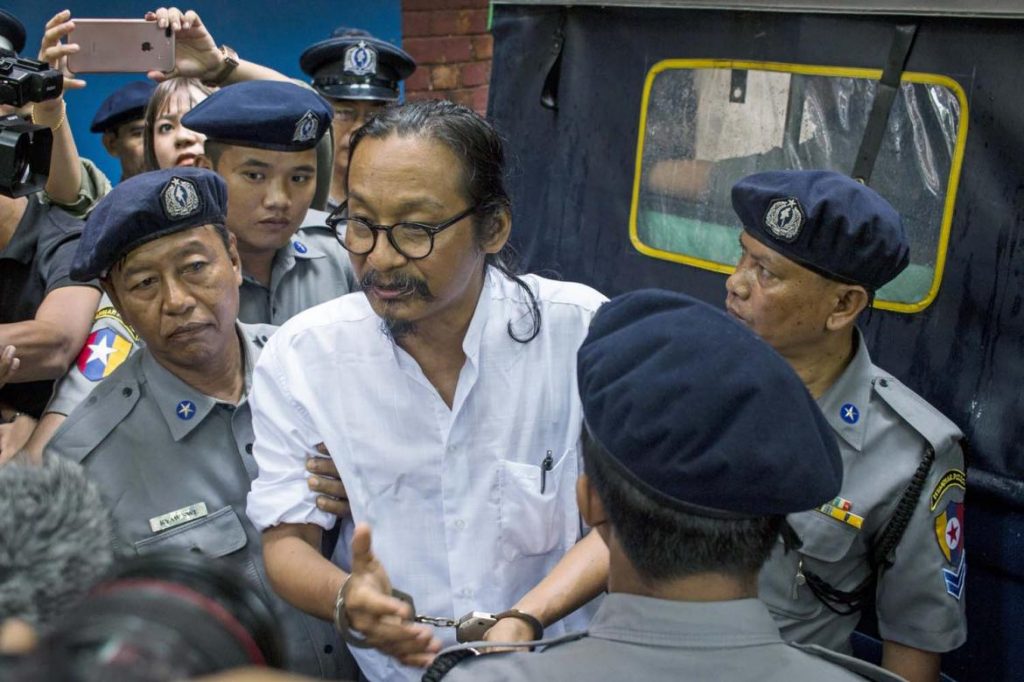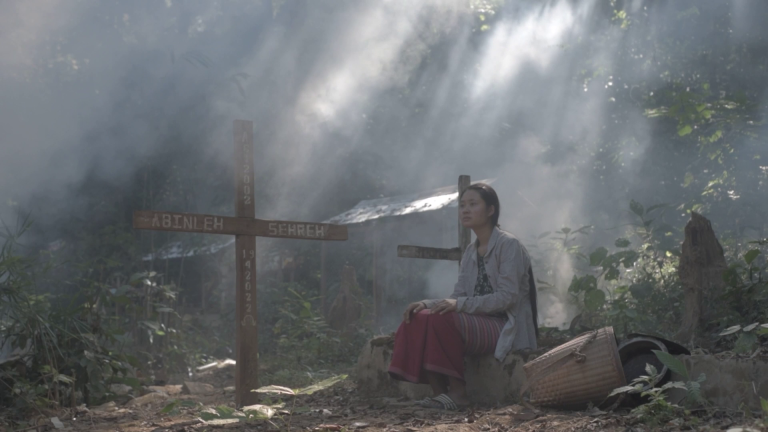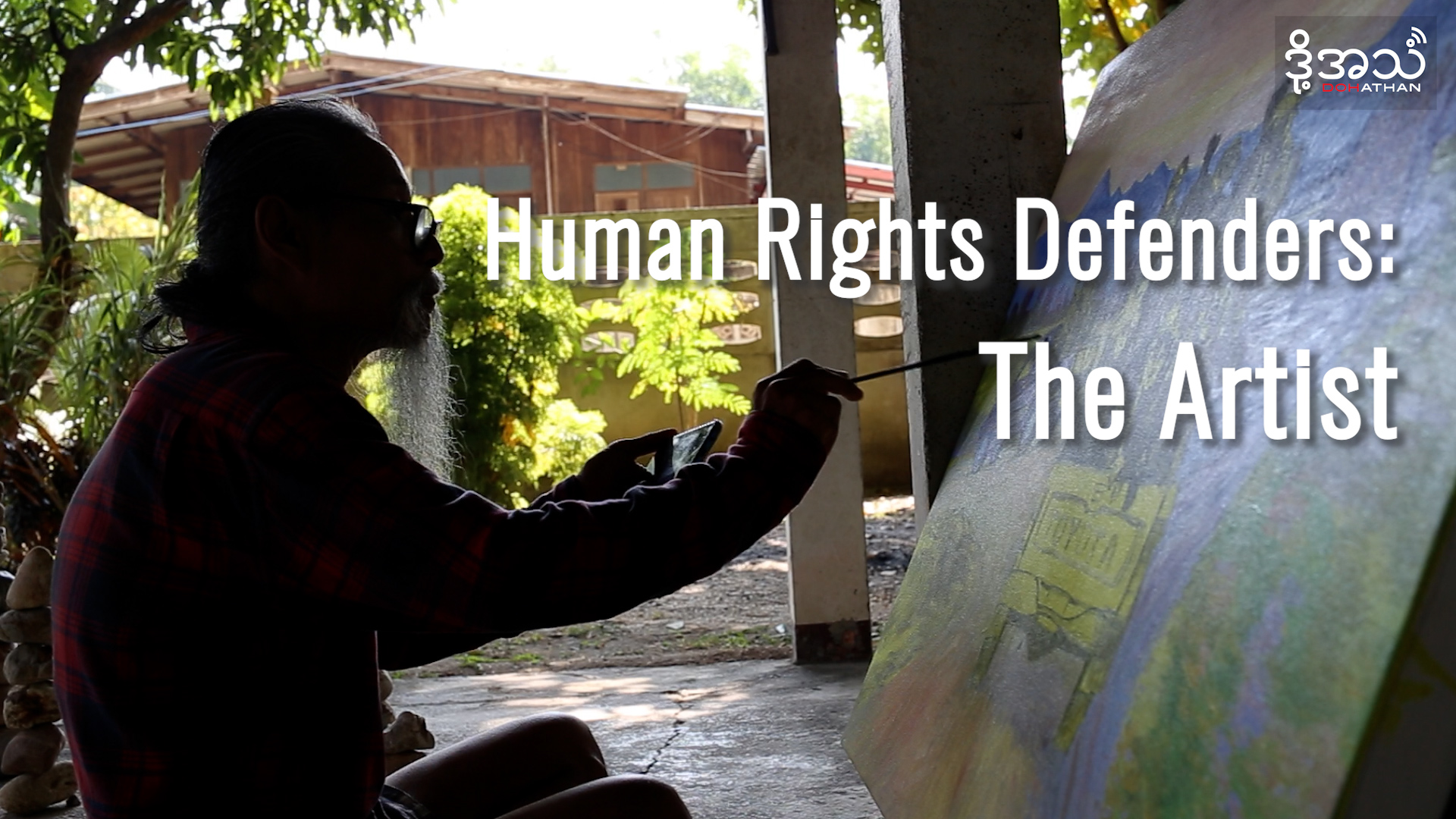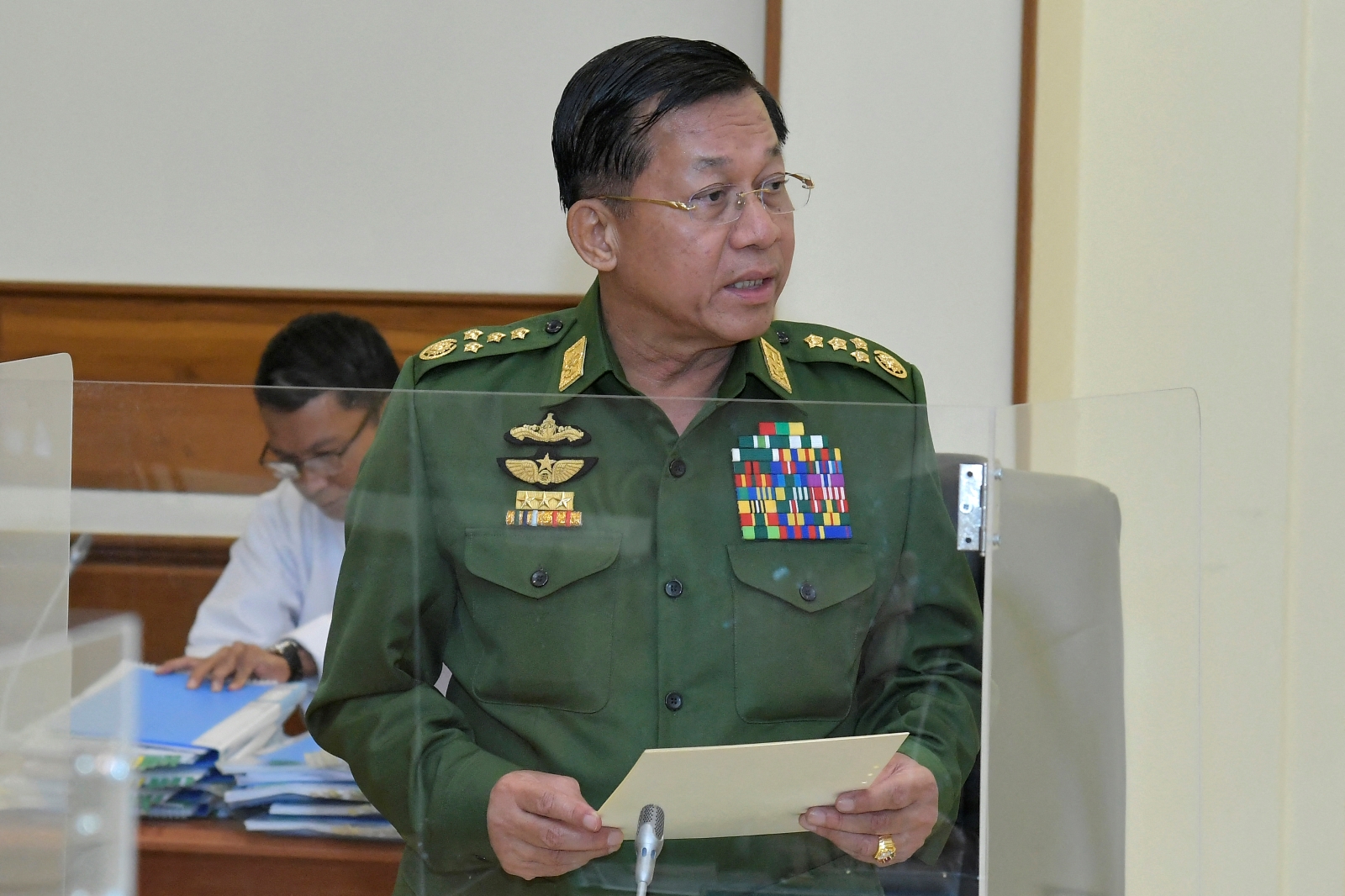U Min Htin Ko Ko Gyi, filmmaker and founder of the Human Rights Human Dignity International Film Festival, is being prosecuted for allegedly defaming the Tatmadaw in a series of Facebook posts. He has been denied bail, despite having liver cancer, and faces a two-year prison sentence. Frontier’s Naw Betty Han interviewed him in Insein Prison, where he has been detained since April 12.
How is your health?
I have had a cancerous growth removed from my liver. Normally, there would be a post-operation check to determine the status of the cancer but I have not a chance to do that in prison.
How are conditions in prison?
When I was first sent to Insein Prison it was April 12, and it was very hot in the prison cell. I had to bear scorching heat. I recently learned I’m entitled to be detained in hospital where it is more comfortable but I have tried to get by here because I don’t want to compromise my political principles.
Do you expect to be convicted or acquitted?
Support more independent journalism like this. Sign up to be a Frontier member.
I was initially charged at a police station under section 66(d) of the Telecommunications Law [online defamation] over 11 posts on Facebook. When the case went to court I was charged under section 505(a) [of the Penal Code, for attempting to incite disunity in the Tatmadaw]. This shows they are going too far because 505(a) is for behaviour detrimental to the State and it has never been my intention to cause disunity in the Tatmadaw. My intention from the beginning has been for the constitution to be amended and for the Tatmadaw to stay out of politics. My case should not be prosecuted. I am thinking about the judge. Would he sentence me out of fear? Fear is one of the causes of corruption.
In the past you often wrote posts on Facebook about the Tatmadaw. Why were you charged this time?
I have posted in previous years, but I’m being charged for posts made between February 15 and March 23. I think it’s indicative of the apprehension within the Tatmadaw as the 2020 election draws near. When I appeared in court on April 12 on the 505(a) charge I hoped that the judge would exercise his discretion under the law to grant bail because of my health. I was astonished when I was refused bail.
Do you regret your criticism of the Tatmadaw?
Not at all. I have been saying for a long time and will continue to say that the Tatmadaw should leave politics and that the constitution should be amended. Only when the Tatmadaw leaves politics and the constitution is amended can Myanmar build a genuine Federal Union and have a true democratic civilian government.
Why do you think the military has lately been filing so many defamation complaints, including against the youth performers in the Peacock Generation thangyat troupe?
As I said earlier, it is because the 2020 election is drawing near and it is making the Tatmadaw tense and determined to suppress those who are outspoken.
Why did you release a statement on May 22 saying that “no criticism” should be directed at State Counsellor Daw Aung San Suu Kyi over your case?
Daw Suu is busy with more important matters than my case, which is trivial in comparison. Unjustified arrests and prosecutions have long been common. She herself was under house arrest for many years. She has been prominent in speaking about the rule of law and the shortcomings and weaknesses in applying the law. Such a person would not interfere in a legal case and I neither expect nor want her to interfere in mine.
In the May 22 statement you said the Union attorney general is “from the military”. Did that mean anything beyond the fact that the UAG was formerly in the Tatmadaw?
I mainly wanted to say that the Tatmadaw is deeply involved in Myanmar’s politics and that it dominates all sectors, including the judiciary.
What are your proudest achievements as a filmmaker?
“Beyond the Dream” and “The Last Poem”, which I wrote and shot, are the ones I like best. I also take pride in being a scriptwriter. For five years [2013-17] I took the Human Rights Human Dignity International Film Festival throughout the country, including to small, remote towns. I took great pride in the film festivals.
What progress have you made with the documentary about Aung San Suu Kyi?
The project was launched in 2012 after Amay Suu agreed to be interviewed for eight hours for the documentary. However, she has been busy since the 2012 by-elections and I have been planning film festivals, so I was not able to work on the documentary. We have already interviewed her for two hours and I hope she can grant more time because I want to finish the project.
Why did you leave the team making a film about Bogyoke Aung San and how do you feel about no longer being involved in that project?
I was involved from the beginning as a member of the board formed to shoot the film, in which I led the scriptwriting team. We completed the script in 2013. Funding problems halted shooting and in November 2017, a committee headed by Minister of Religious Affairs and Culture Thura U Aung Ko was formed to shoot the Bogyoke film. My role on the committee was as a director and script-writer, tasks that Amay Suu had verbally assigned to me since 2014. I wanted to re-write the script and Thura U Aung Ko gave me six months to do it, from December 2017 to June, but I couldn’t finish and asked repeatedly for more time. He refused my last request and dismissed me. I was sorry about that.
Tell me about the achievements of the Human Dignity Film Institute you founded?
The institute produced 36 filmmakers in three years [2013-15]. The courses were for four-and-a-half months and international practitioners were invited to provide training. Of the many films made by students of the institute, two have given me the greatest pride and satisfaction. They are “Vein”, a [2016] documentary about jade mining in Kachin State, and “Across”, a documentary about the gas pipeline built between Kyaukphyu and China.
What’s your assessment of the state of cinema in Myanmar?
Movies now look and sound better but we are yet to see films with very good scripts. I would like to start a script-writing course [when I’m released]. I’ve always said that ones who will save Myanmar film are not actors or producers but scriptwriters. After this case is finished, I’ll write new scripts and shoot new films. I want to leave a lot of work behind.
What do you think of the state of freedom expression in Myanmar?
Even though the right to freedom of expression is included in the constitution, the situation has reverted to what it was under military rule. Freedom of expression is essential for people in society to live with dignity.
Preliminary hearings in Min Htin Ko Ko Gyi’s trial will end on July 18, when a judge will decide whether to charge him with breaching section 505(a) of the Penal Code.







